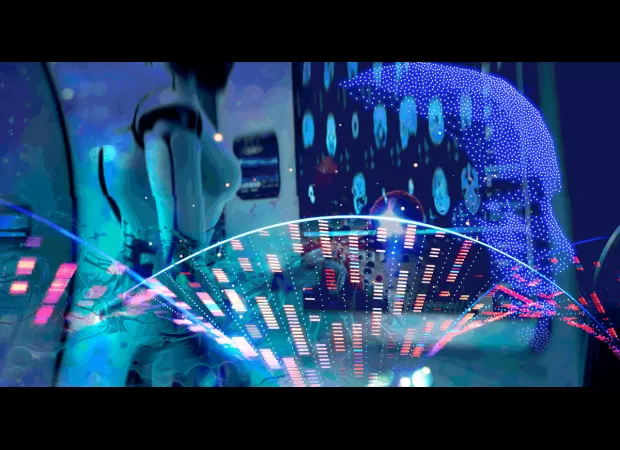Doctors are preparing for AI to help with diagnosing and treating breast cancer.
A large cohort of radiologists is set to retire, creating a shortage in the field; AI may be able to help bridge this gap.

As the healthcare industry continues to evolve, new technology is set to revolutionize the way we treat patients and address staffing crisis issues facing the NHS. Artificial intelligence (AI) has been tested in depression treatment and could potentially aid in early detection of diseases like Parkinson’s and diabetes.
The benefits and risks of AI in medicine have been widely discussed, and many experts agree that it’s only a matter of time before it becomes the norm. This was a topic of conversation on the Mammograms and Me podcast, hosted by Dawn Butler, with Alice Davies of Cancer Research UK explaining how AI could help ease the strain of the NHS workforce.
“At the moment, mammograms have to be examined by a doctor,” explained Alice. “In the NHS there’s a big strain in the workforce which is a limiting factor in how fast these procedures can be done. So AI could potentially automate some of that process. But further research needs to be done as we don’t want to replace that human doctor with something that doesn’t work as well. We need to know the process is feasible and safe.”
Recent studies have found that computer-aided detection could spot cancer in mammograms – X-ray pictures of the breast – at a ‘similar rate’ to two radiologists. The NHS is already researching how to implement this type of technology into their breast screening programme.
Addie Mitchell, of support charity Breast Cancer Now, shared her excitement and fear about AI being intertwined with screenings. She said: “They’re talking about possibly getting AI to read mammogram results – and the verdict would then be read by a [human] radiologist. There’s a national shortage of radiologists as a big group is about to retire, so AI could fill in some of this gap.”
The use of AI in breast screenings was studied for the very first time in a randomised control trial involving more than 80,000 women from Sweden, with an average age of 54. It was reported that the use of AI could potentially almost halve the screening workload.
Addie Mitchell also discussed how AI could help fill the gap of overstretched and underfunded NHS services. She added: “Breast screening services are currently overstretched and underfunded, and they have been for some years now. NHS workers are working so hard to keep up.”
Dame Laura Lee, of Maggies, believes that while AI could be used to help heal the struggling NHS, the human touch will always be vital. “AI is a wonderful opportunity to help with the medical workforce. We’re not there yet, but it’s coming. But we don’t want a future where AI is making the final call and issuing the diagnosis, there will always be a human element,” she said.
It’s clear that AI has the potential to make a huge difference in the healthcare industry, especially in regards to the staffing crisis in the NHS. However, it’s important to remember that AI can never take the place of human empathy and understanding. As we continue to explore this technology, we must focus on finding a balance between the two to ensure the best possible care for patients.






